Are you looking for a permanent solution for contact lenses or foggy glasses? LASIK can correct common refractive errors, allowing you to enjoy decades of clear vision free from glasses and contact lenses.
However, not everyone is a good candidate for LASIK, as you should be within a certain age range to achieve the best vision results. Keep reading to learn more about whether you’re too old for LASIK and its age limits.
What is the Age Limit for LASIK?
LASIK is a vision correction procedure that can correct astigmatism, farsightedness, and nearsightedness, reducing or eliminating the need for prescription lenses. The FDA has approved the procedure for anyone aged 18 and older.
Those under 18 are not recommended for LASIK because their eyes are still developing and changing. While the results of LASIK are long-lasting, having the procedure before your vision has stabilized can make it ineffective.
You could find yourself back in contact lenses or glasses after only a few years post-LASIK.
Can You Have LASIK After 40, 50, and 60?
There is technically no upper age limit for LASIK. As long as you are in good health, have stable vision, and your eyes are healthy enough, you may be a suitable candidate for LASIK, no matter your age.
Whether or not you qualify for the procedure is decided on a case-by-case basis by your eye doctor. However, there are special considerations after age 40 that include:
Presbyopia
As your eyes age, your lenses lose elasticity and become less flexible, leading to presbyopia. Presbyopia or age-related farsightedness is the gradual loss of the eye’s ability to focus on up-close objects.
It usually begins in your 40s and continues to worsen until about age 65. With presbyopia, you may find yourself holding reading materials at arm’s length to see words and images better.
Although LASIK can correct refractive errors, it cannot correct presbyopia. If you have presbyopia and want to correct your vision, talk to your eye doctor for more options.
Cataracts
Cataracts develop when proteins in the lens of the eye start to break down and clump together, causing it to become cloudy. Approximately 20.5 million Americans over age 40 have cataracts.
LASIK doesn’t prevent or slow the formation of cataracts. If you have cataracts, you cannot get LASIK.
If you choose to undergo cataract surgery at Colorado Eye Consultants to treat your cataracts, you will have the opportunity to select a premium IOL to replace your natural lens, some of which can provide the same visual freedom as LASIK.
Dry Eyes
Dry eyes occur when your eyes don’t make adequate tears or produce poor-quality tears that evaporate rapidly. Dry eye is more prevalent and usually becomes more severe as you age.
Various factors can contribute to age-related dry eye, including decreased tear production. Tear production naturally declines with age, resulting in discomfort and dryness.
Getting LASIK can worsen pre-existing dry eye symptoms. Because of this, your eye doctor may not recommend LASIK as a suitable vision correction option if you have dry eye.
The procedure alters the shape of the cornea to improve vision. These changes can prevent tears from spreading evenly across the surface of your eyes, leading to persistent dry eye symptoms.
Certain ages are better suited to LASIK, and age-related eye conditions are one of the reasons why you may not be a good candidate for the procedure.
Are you interested in LASIK? Schedule your appointment at Colorado Eye Consultants in Littleton, CO, today to determine if you’re a LASIK candidate.

